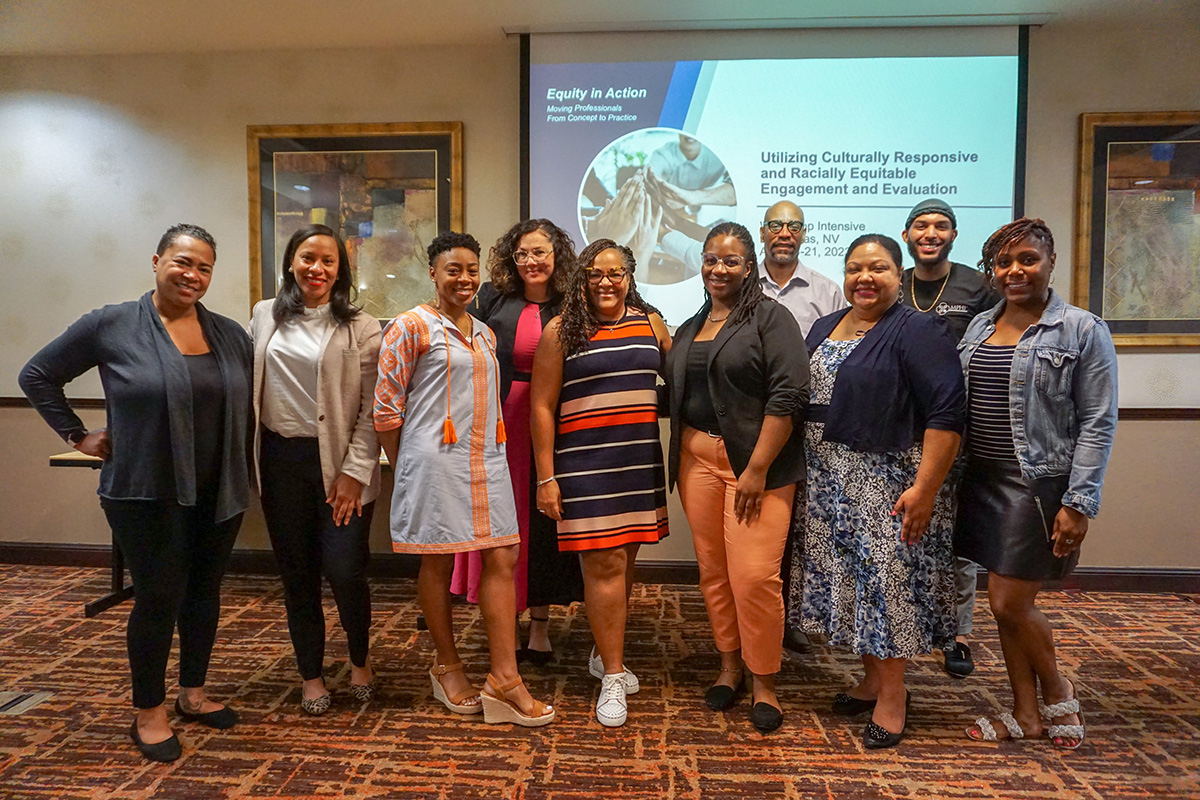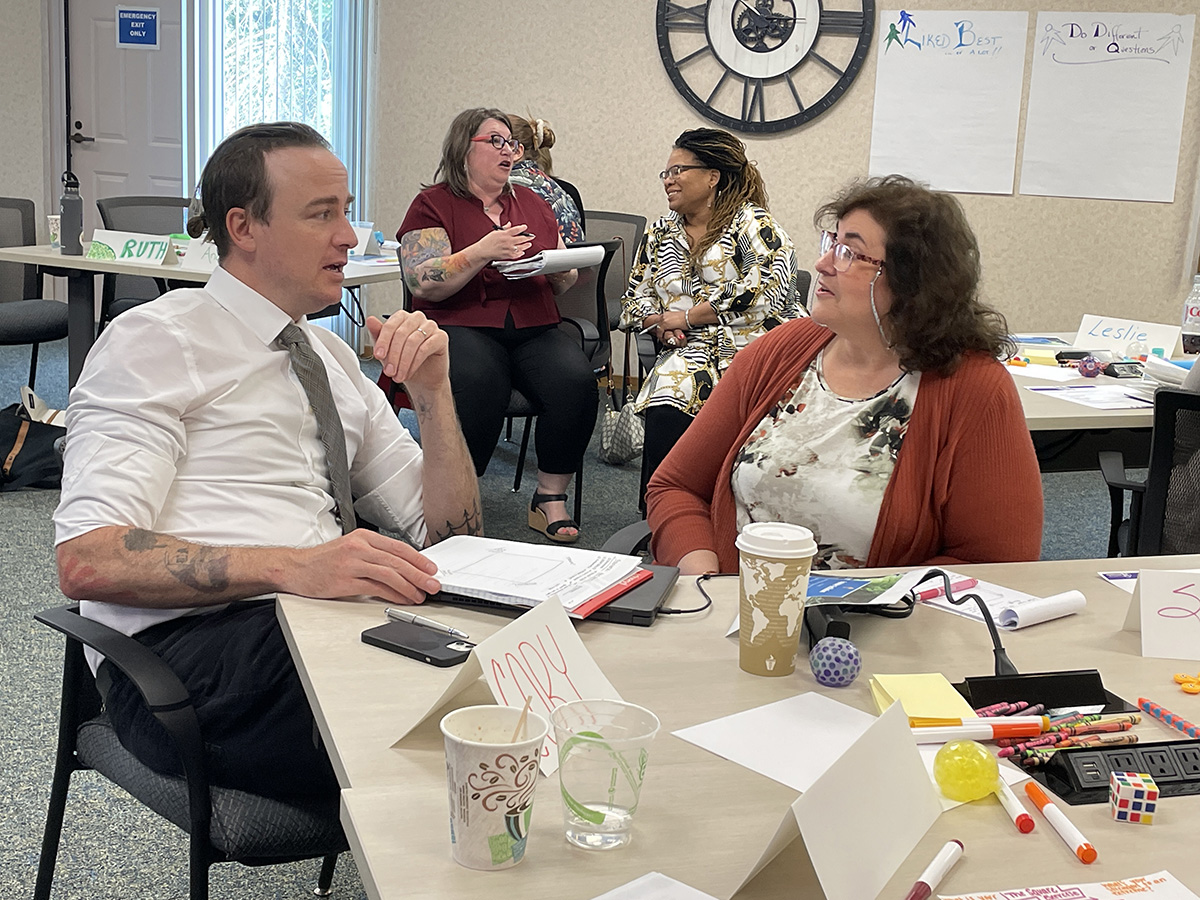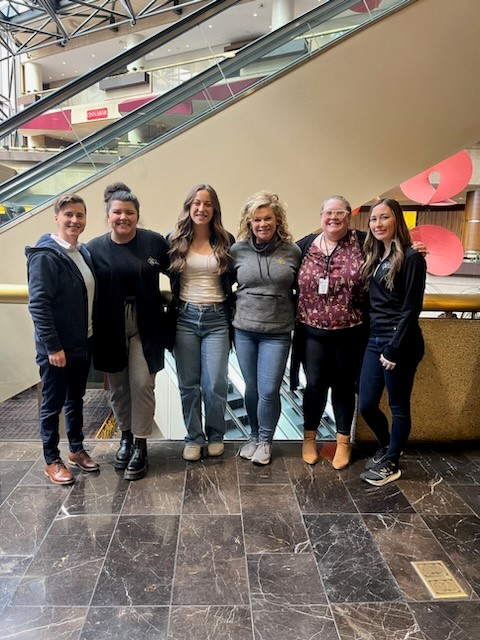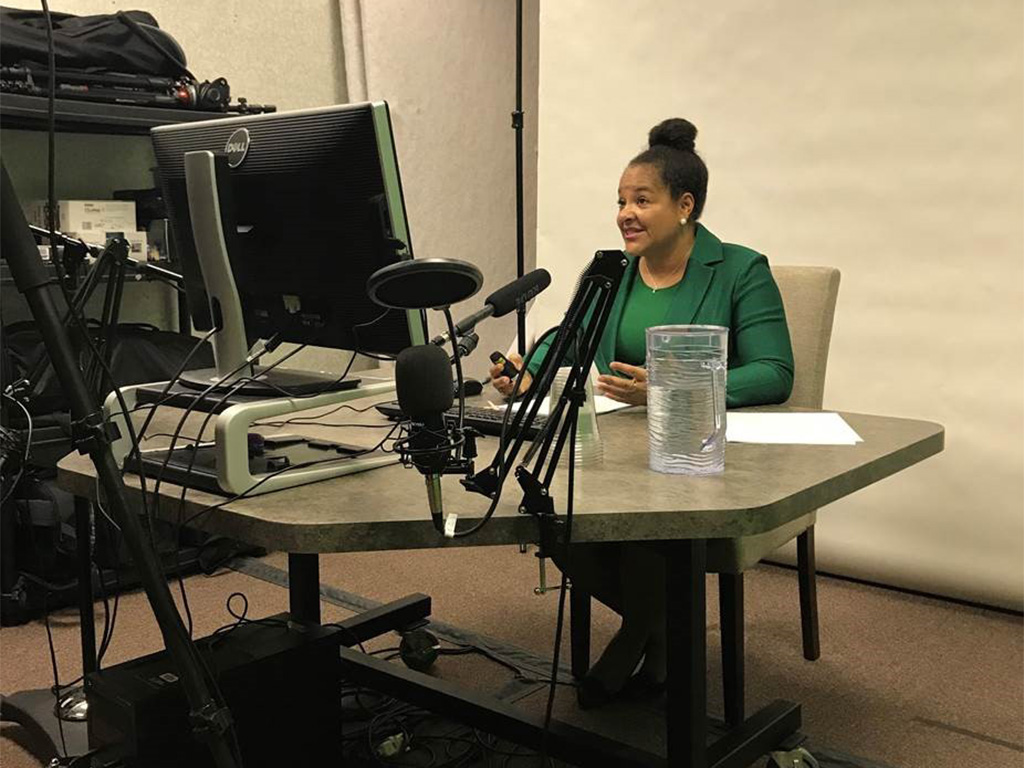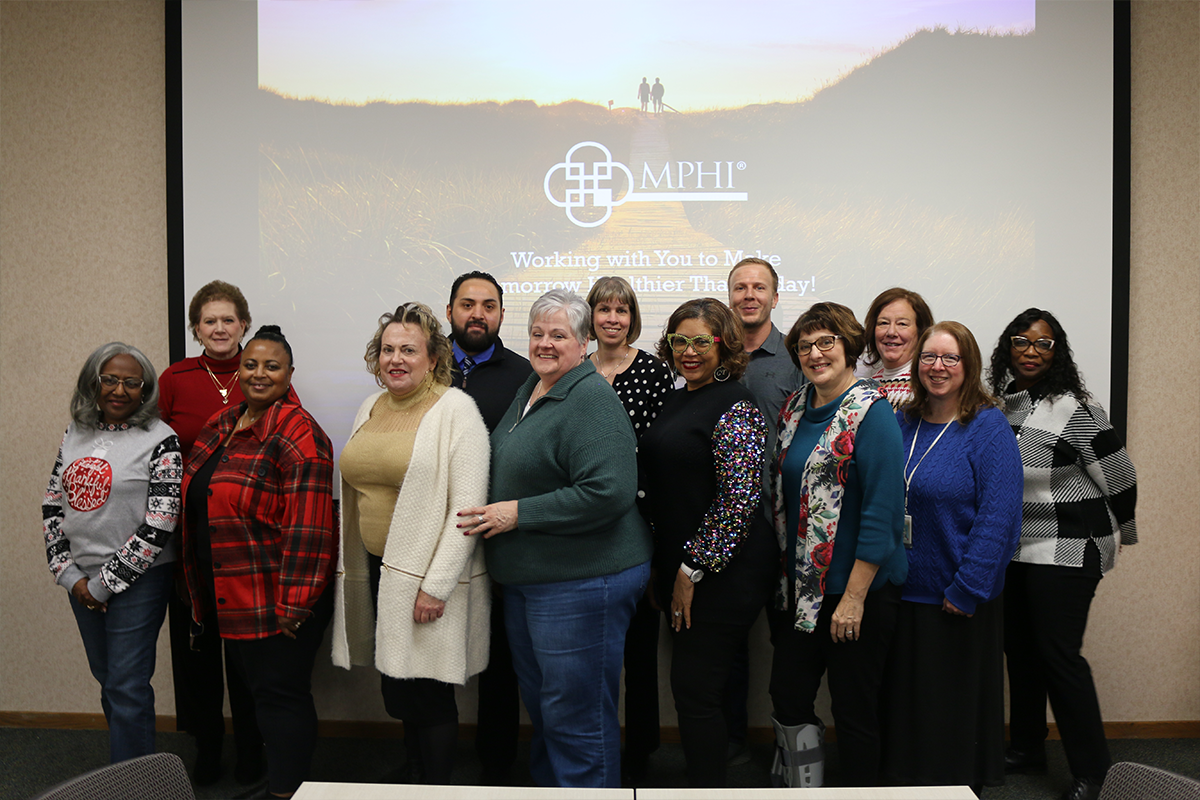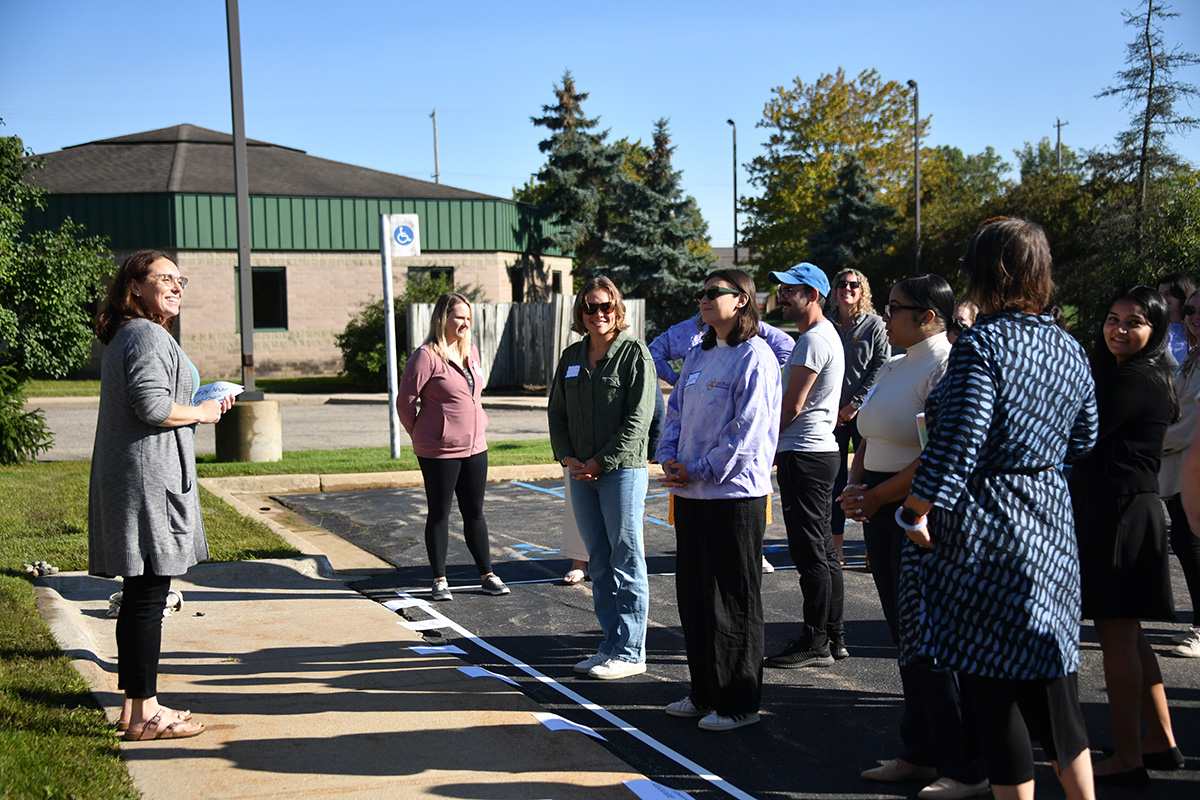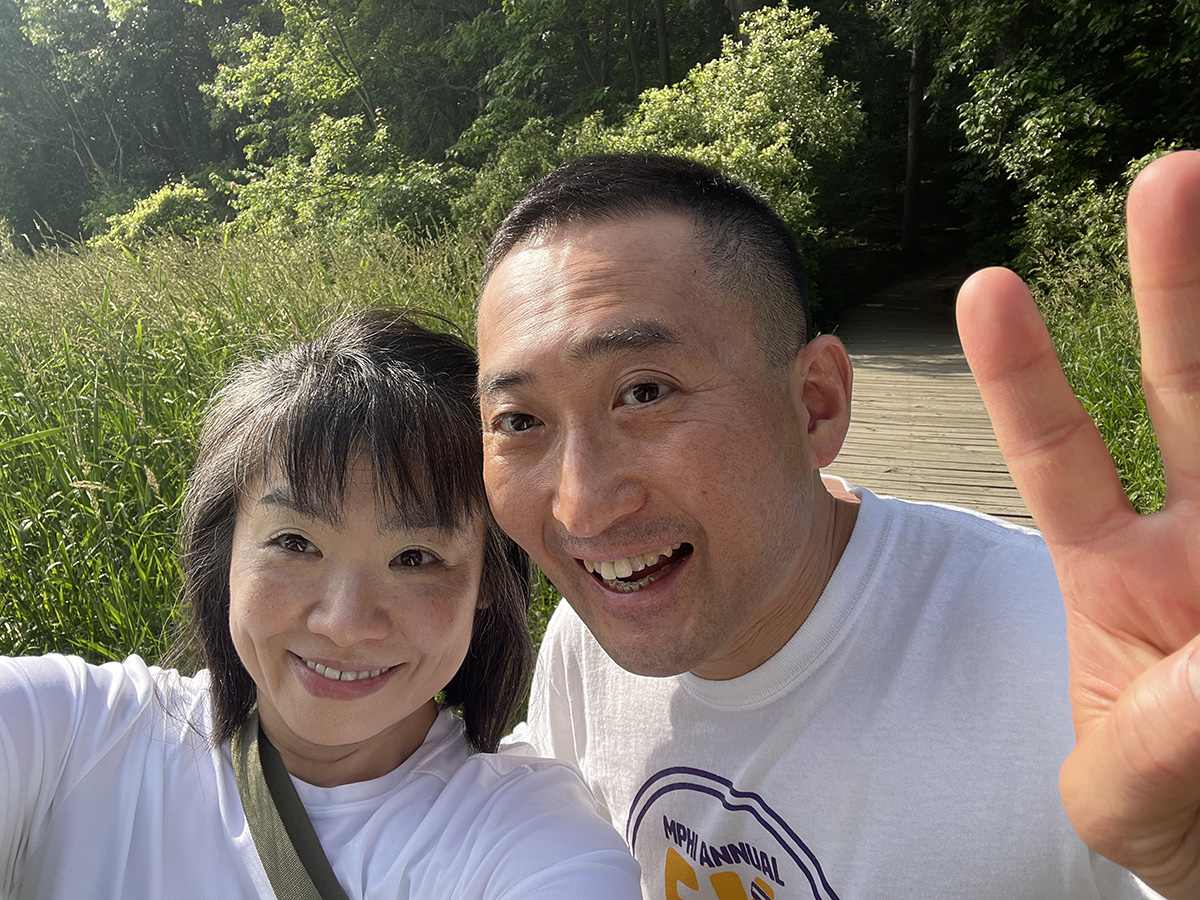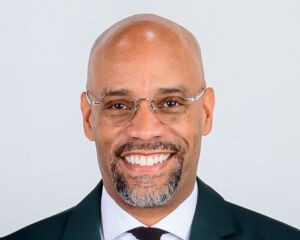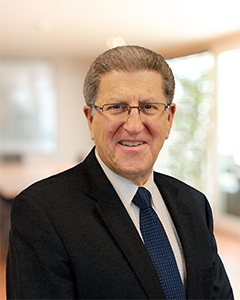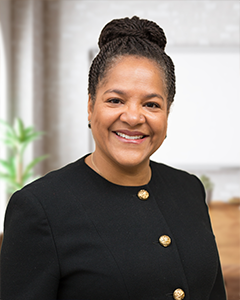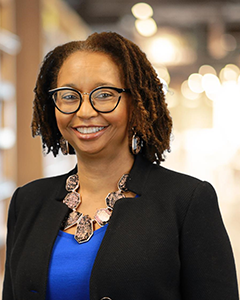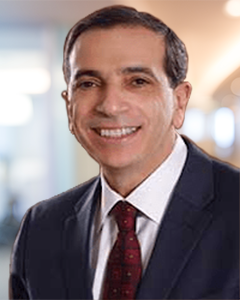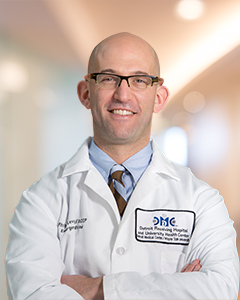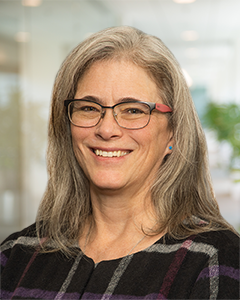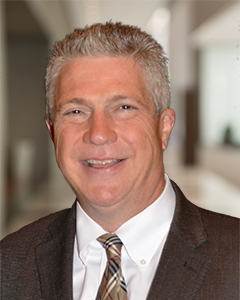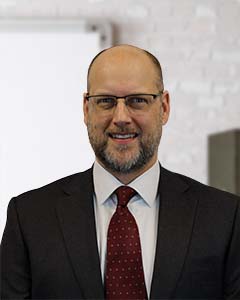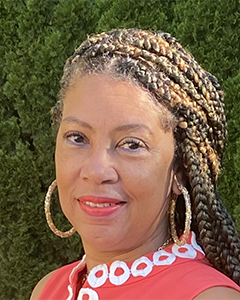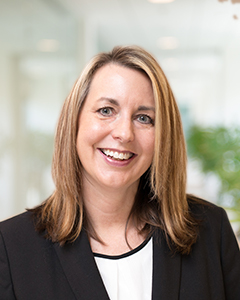2023 ANNUAL REPORT
Thriving in a Hybrid Work Environment
Embracing the NOW Normal Hybrid Work Environment
We moved to a hybrid work setup as a temporary solution during the onset of the global pandemic. Seeing staff’s tremendous performance, we’ve fully embraced a hybrid work environment, which we call our “now normal.” Over the last year, we’ve adapted and flourished, proving that our work location does not reduce the impact of our actions. No matter our location, we’re dedicated to dismantling unjust systems, sharing public health knowledge, and ensuring everyone has the opportunity to reach their health potential.
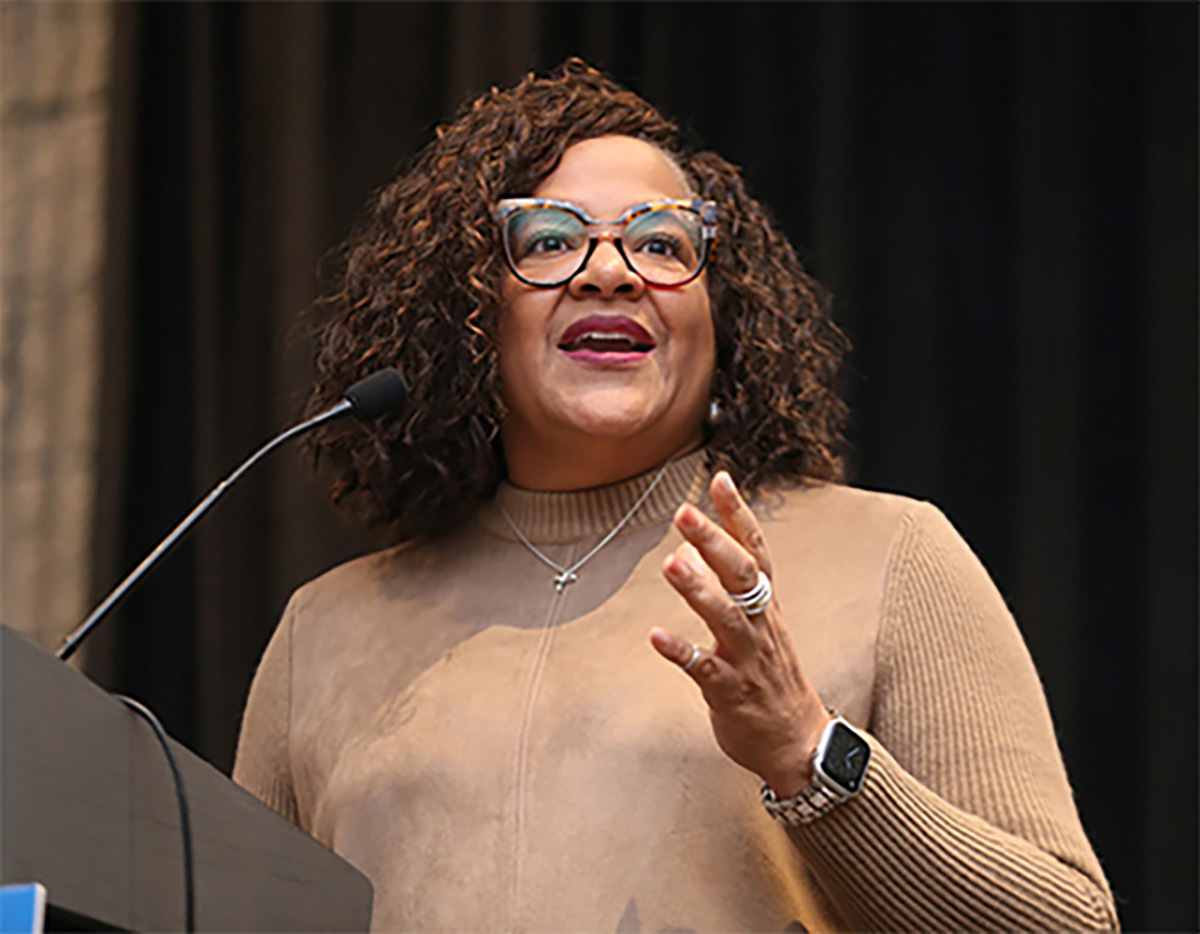
Dr. Renée Branch Canady, speaking at the
American Public Health Association’s (APHA)
Women’s Leadership Institute.
A Message From CEO,
Dr. Renée Branch Canady
Our work environment has evolved since the pandemic began, and we had always planned to return to the office. However, with staff feedback, evaluation of our work progress, and listening to relevant research, we’ve transitioned toward a permanent hybrid model – this is “now normal” for us.
We are an institute rooted in public health’s commitment to equity and social justice; we do not believe in a one-size-fits-all approach. This new model prompts us to focus on all aspects of health, including physical, financial, and mental wellness. At the same time, we are finding new ways to engage and connect with our partners and each other in the MPHI community.
Our People ARE
Our Strength
We Strive to Improve Employee Wellness
Ensuring the well-being of our employees is not just an organizational responsibility but is essential to delivering exceptional work for the people and communities we serve. In 2023, we took many steps to enhance employees’ lives and work balance, ensuring they are supported and equipped with the resources they need to do their best work.
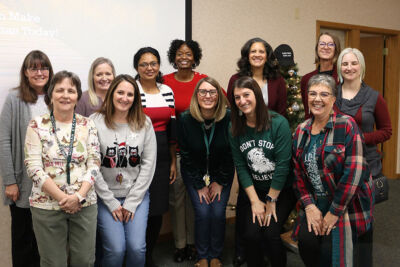
Financial Equity
We continually analyze salaries across MPHI and compare them to the current market to recruit and retain staff.
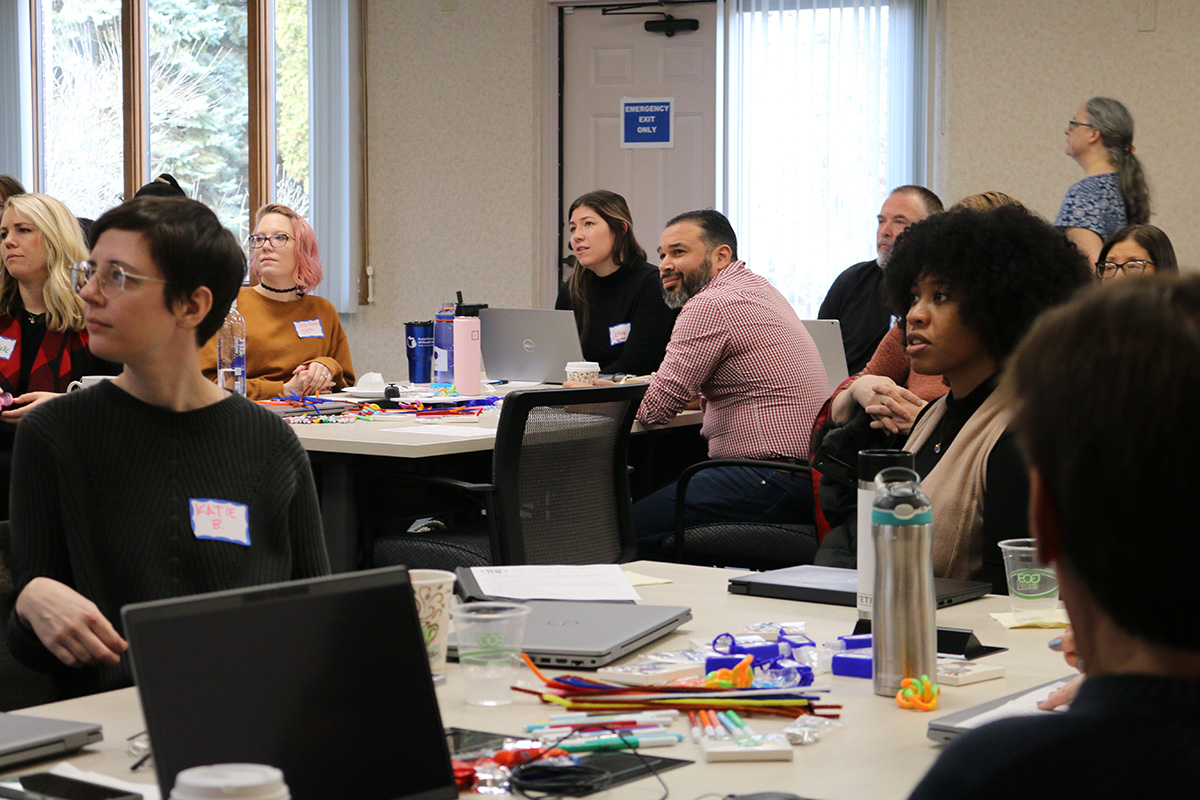
Listening to Staff
Our employee survey gathered insights on staff needs, challenges, and successes, allowing us to guide future initiatives.
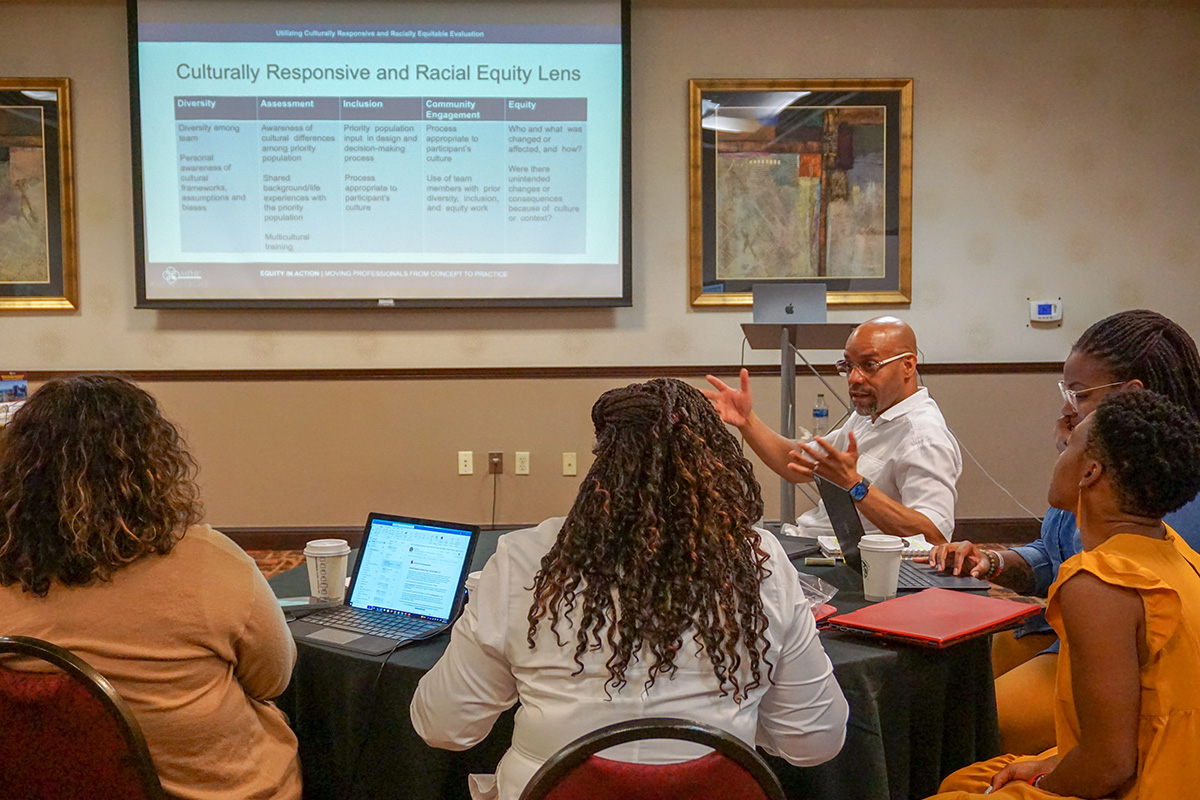
Skill Building
Staff are required to engage in at least one professional development activity annually to continue building the knowledge and capacity of our workforce.
1,000+
Professional development activities (trainings, conferences, etc.) employees attended.
200+
Presentations delivered at public events across the country.
150+
Publications including books, articles, blogs, and editorials written by experts on our staff.
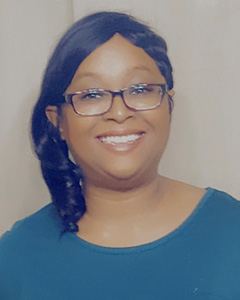
![]()
As a new employee of MPHI, I appreciate the inclusive
culture and generosity of this organization. Thank you,
I plan to never leave!
Crystal Depillars, LMSW
MI Choice Quality Assurance Reviewer
Business Solutions Group (BSG)
Our Employees
Our Champions
Pioneering Conversations in Public Health
Our staff work across the nation. Even though our work locations are separate, our commitment to share our public health work and knowledge with professional peers unites us. At MPHI, we take every opportunity, including conferences, podcasts, and media engagements, to highlight our work and elevate equity as a core practice in public health initiatives.
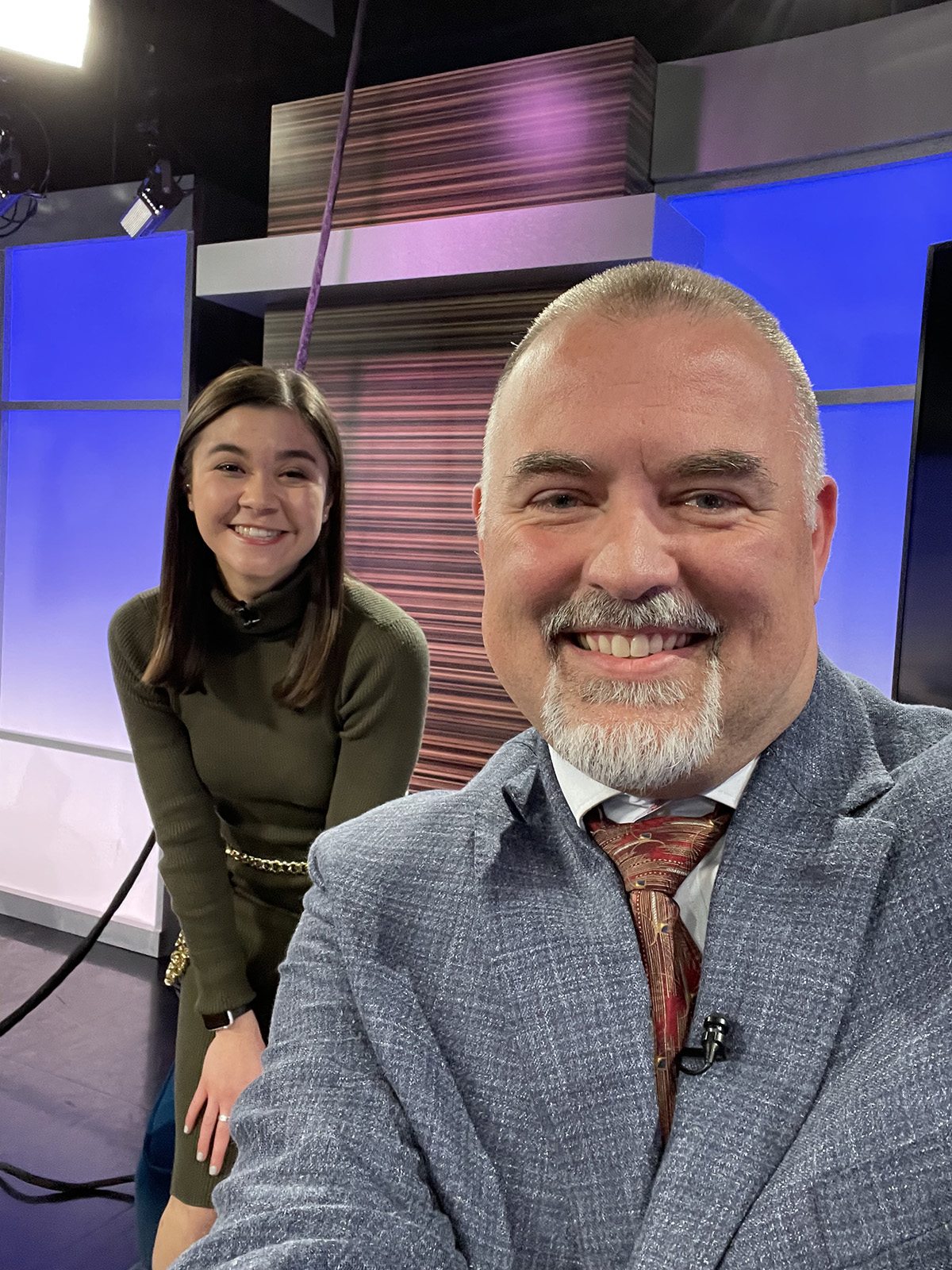
Dr. Mathew Edick, Director, Center for Strategic Health Partnerships (CSHP), at WILX’s Mid-Michigan Matters to discuss $2.4 million award for Preventing Adverse Childhood Experiences (ACEs).
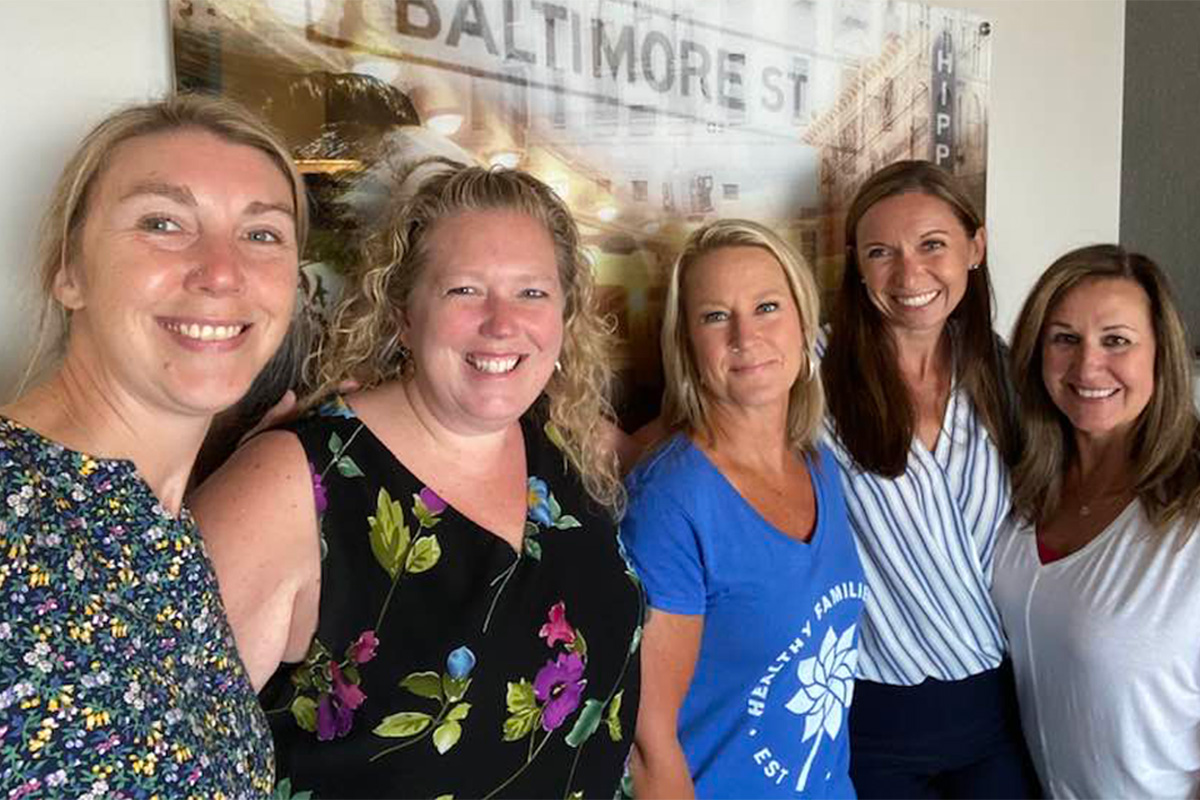
Quality Family Support team from the Center for Healthy Communities (CHC) at MPHI, presented at the Parents as Teachers International Conference in New Orleans.
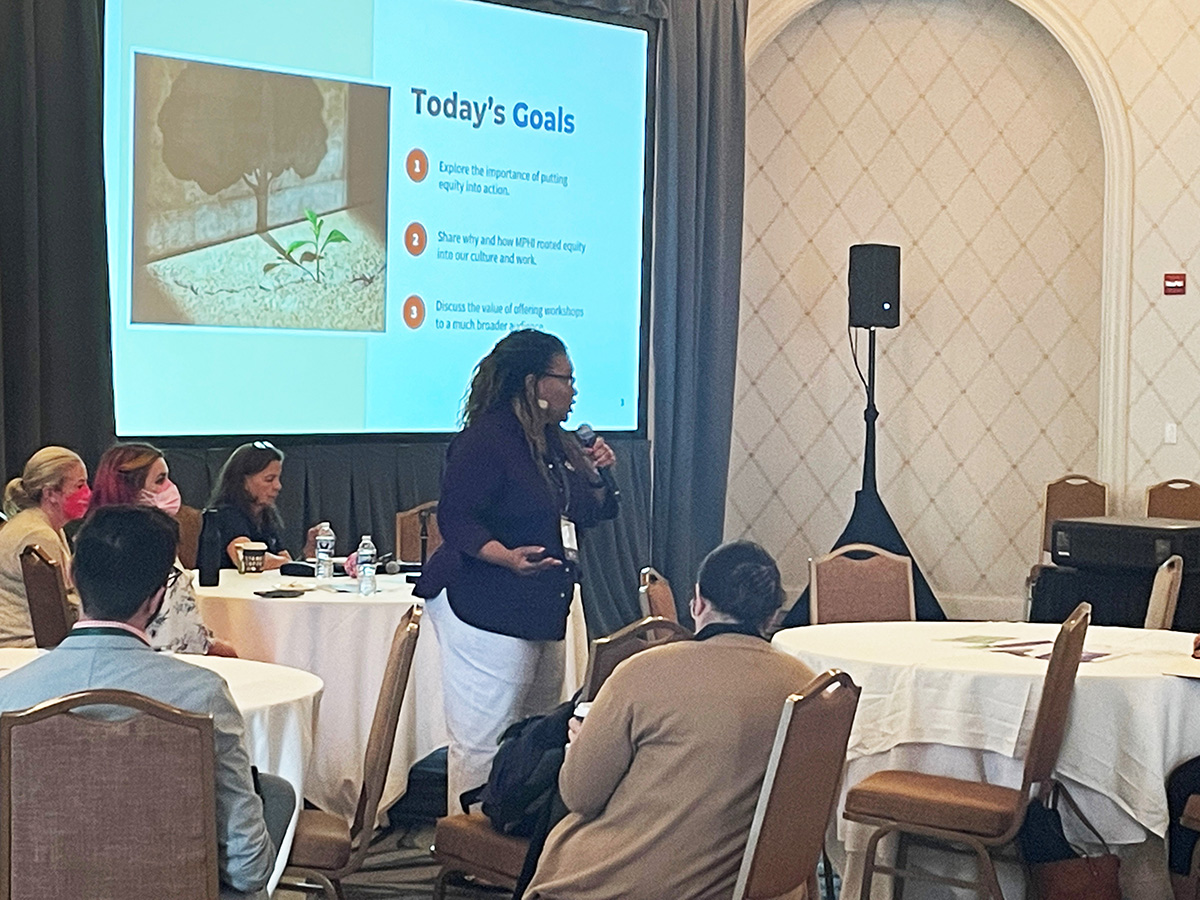
Hope Rollins, Director of Education and Training, at MPHI, presented on the Equity in Action (EIA) Workshops at the National Network of Public Health Institutes (NNPHI) Annual Conference.
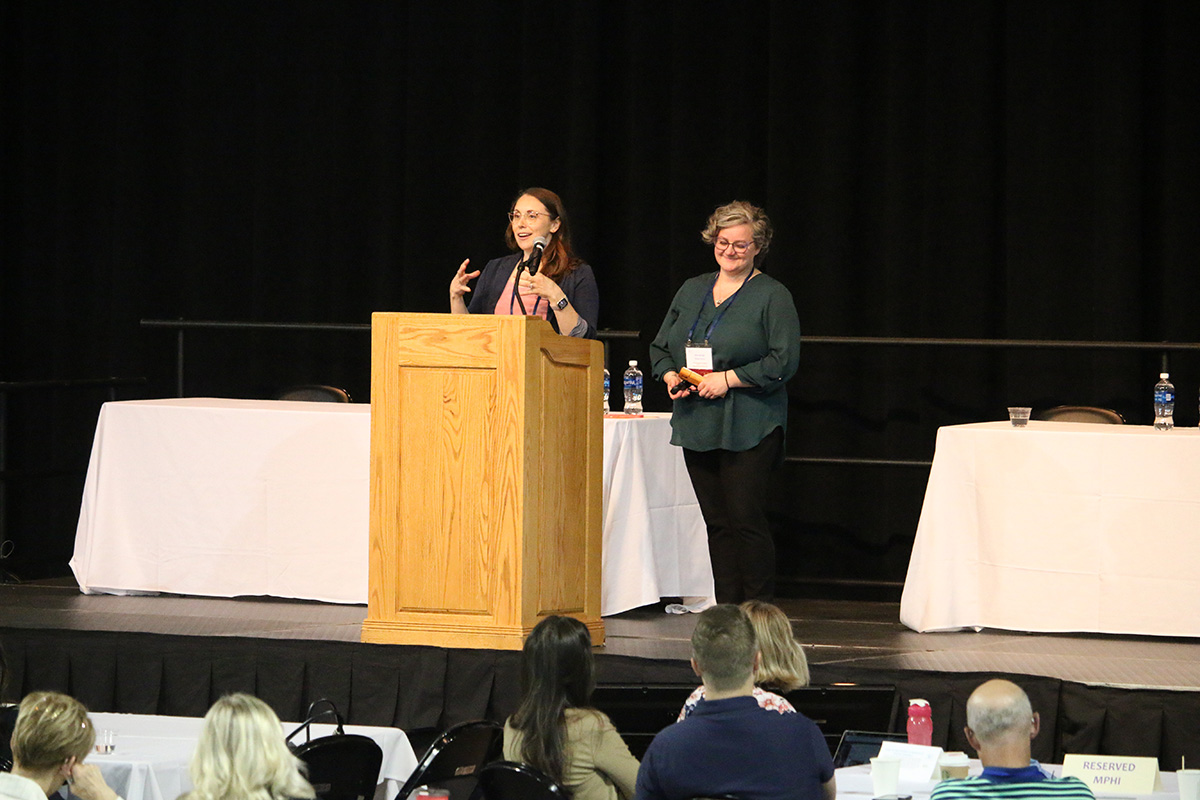
Angela Precht, Associate Director and Amanda Martens, Program Associate at Center for Healthy Communities (CHC) facilitate an action planning session for over 200 people at the Michigan ACE Initiative Conference.
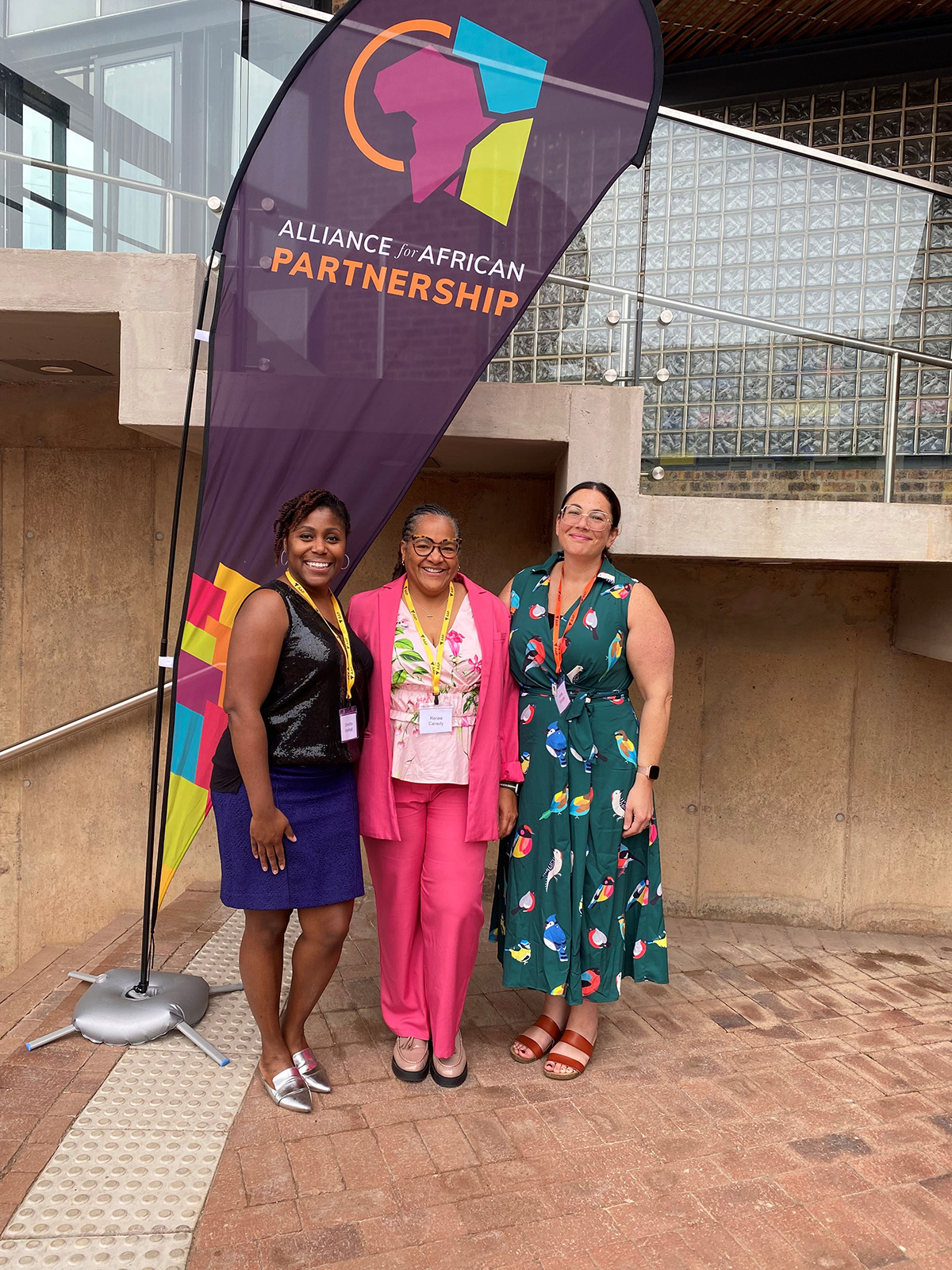
Dr. Shondra Marshall, Dr. Renée Branch Canady, and Linda Gordon attended the Michigan State University Alliance for African Partnership Consortium Meeting at the University of Pretoria in South Africa.
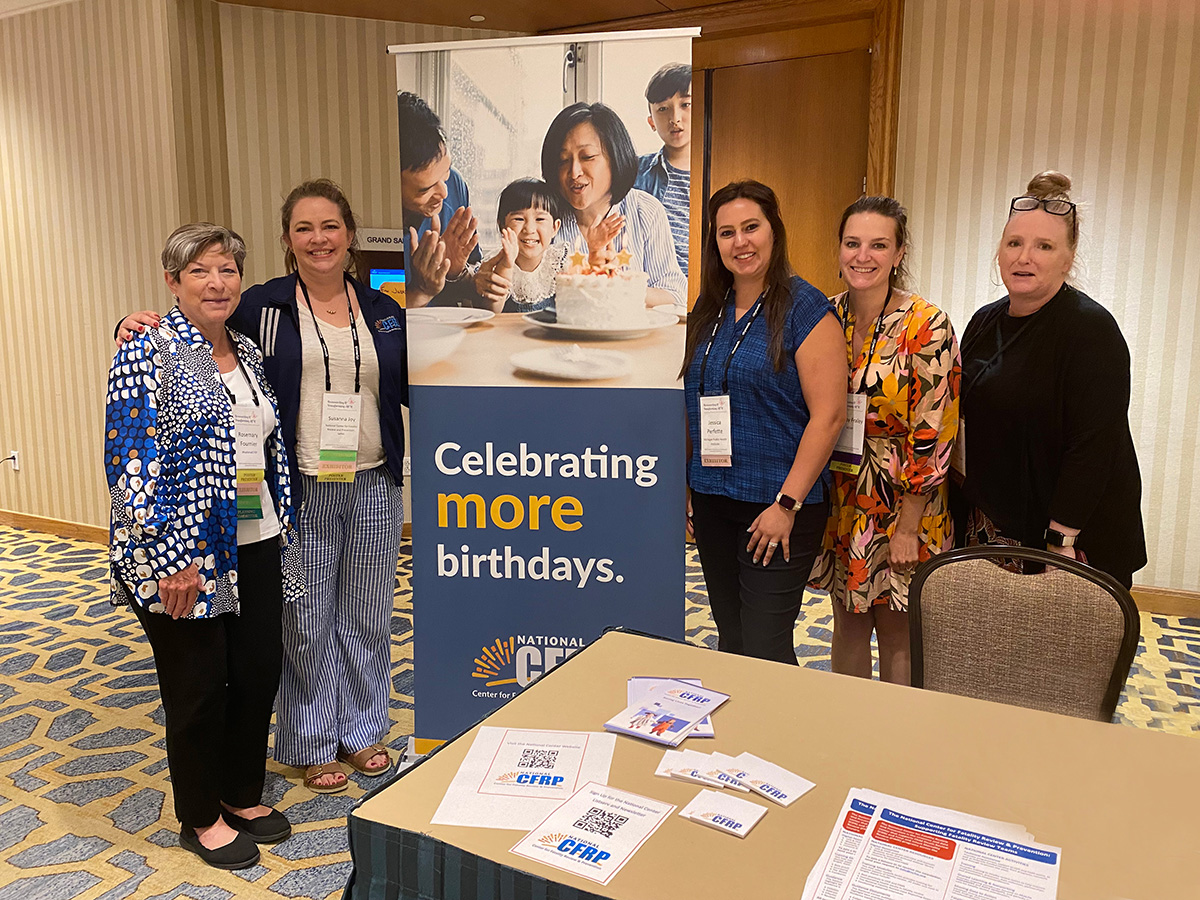
Center for National Prevention Initiatives Staff at MPHI attended and presented at the CityMatCH Conference, in New Orleans.
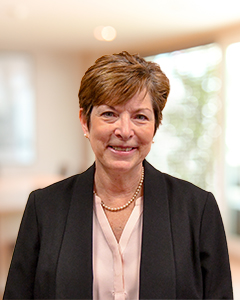
![]()
The stories parents and families share with the Fetal and Infant Mortality Review program help humanize and heal, deepen understanding and motivate action, and catalyze greater impact for systems change.
Rosemary Fournier, FIMR Director
National Center for Fatality Review and Prevention
Center for National Prevention Initiatives (CNPI)
Creating a culture of ANTI-OPPRESSION
Creating a Culture of Anti-Oppression (AO)
We’re continually nurturing a culture rooted in anti-oppression principles and improving our capacity to identify and address inequity in our systems and decision making. In order to be the best public health partner we can be, MPHI embraces the ongoing journey and ever-evolving internal practice of anti-oppression. Our commitment is to ensure that our core value of Health Equity and Social Justice is aligned with our policies and practices and foster a work culture where everyone is valued, heard and feels a sense of belonging at MPHI.
2023 Internal Anti-Oppression Activities and Highlights
In 2023, the Anti-Oppression Leadership Team (AOLT) at MPHI added three Public Health Fellows for 2024. This represents a strategic initiative to enhance capacity and support the institute’s Anti-Oppression (AO) efforts. The Fellows’ roles are crucial for advancing institute-wide corporate strategic goals of centering anti-oppression and equity in interactions and operations, contributing to a culturally responsive commitment to compliance and quality assurance, and strengthening a culture prioritizing staff wellbeing. By assisting in administrative tasks, supporting educational and awareness initiatives, and facilitating the operationalization of AO goals, the Fellows are instrumental in creating a more inclusive and equitable work environment.
This effort supports the development of a diverse professional workforce. Through these roles, the Fellows will evolve from students to experienced MPHI employees, proficient in working with diverse communities and applying AO frameworks effectively.
Join Us in Welcoming the Following Fellows for 2024:
- Briaunna Hughes, Public Health Fellow, Michigan State University (anticipated graduation date Dec. 2024).
- Tazia Miah, Public Health Fellow, Wayne State University (anticipated graduation date Dec. 2024).
- Lizbeth Blas-Rangel, Public Health Fellow, Kalamazoo College (anticipated graduation date Dec. 2024).
A workplace affinity group gathers employees connected through a common purpose or interest. MPHI has two identity-based affinity groups—our Staff of Color Affinity Group (SOCAG) and an LGBTQ+ Workgroup. These groups focus on fostering psychological safety and belonging, ensuring inclusion of staff of marginalized identities in MPHI decisions that impact them and providing space for peer support in healing and addressing the privileged and marginalized aspects of our identities. The following outlines the purpose and accomplishments of our current AO groups working in this area:
 Staff of Color Affinity Group (SOCAG): The MPHI-Staff of Color Affinity Group (SOCAG), formed in 2019, is a voluntary employee group whose mission is to actively attract, support, develop, and retain staff of color. SOCAG is inclusive to persons who are linked by a common purpose, ideology, interest, or identity to assist in providing a collective voice. Additionally, we aim to facilitate human connectedness to foster relationship building, increase the sense of belonging, healing and psychological safe space, and personal and professional growth and development opportunities.
Staff of Color Affinity Group (SOCAG): The MPHI-Staff of Color Affinity Group (SOCAG), formed in 2019, is a voluntary employee group whose mission is to actively attract, support, develop, and retain staff of color. SOCAG is inclusive to persons who are linked by a common purpose, ideology, interest, or identity to assist in providing a collective voice. Additionally, we aim to facilitate human connectedness to foster relationship building, increase the sense of belonging, healing and psychological safe space, and personal and professional growth and development opportunities.
2023 SOCAG Highlights
- Finalized SOCAG charter with Executive Sponsor, Dr. Renée Branch Canady, and Advisor, Dr. Paul Elam.
- Conducted SOCAG Member Climate Assessment (38% response rate).
- Grew membership from 58 to 78 members.
- Conducted quarterly SOCAG member meetings.
- Conducted six SOCAG Action Team meetings.
- SOCAG Action Team’s Food Stories effort celebrates cultures, traditions, and meaningful relationships around food which supports a community of belonging.
- Launched SOCAG members page on internal intranet site to share cultural awareness months, national/community activities, and areas of interest.
- Collaborated with the Anti-Oppression Leadership Team (AOLT) to secure approval for Public Health Fellowship Positions.
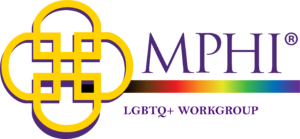 LGBTQ+ Workgroup: In 2023, the workgroup focused on building relationships among members and solidifying the purpose/goal of the workgroup. Additionally, towards the end of 2023 the workgroup identified the need to develop a separate affinity space for 2024 that will be focused less on intuitional action and more on a space for LGBTQ+ staff to be in community with each other.
LGBTQ+ Workgroup: In 2023, the workgroup focused on building relationships among members and solidifying the purpose/goal of the workgroup. Additionally, towards the end of 2023 the workgroup identified the need to develop a separate affinity space for 2024 that will be focused less on intuitional action and more on a space for LGBTQ+ staff to be in community with each other.
2023 LGBTQ+ Workgroup Highlights
- Piloted a process for involving LGBTQ+ staff in shaping our Pride communication strategies, setting a precedent for more inclusive practices during all our Heritage Month celebrations.
- Formed a separate LGBTQ+ Affinity Group.
- Conducted quarterly meetings of the Workgroup.
- Partnered with Information Technology (IT), Human Resources (HR), Corporate Communications and other MPHI staff to provide technical assistance (TA) and feedback on LGBTQ+ related initiatives.
- Built and established trust, relationship, structure and planning for this emerging group.
Ableism is the discrimination of and social prejudice against people with disabilities based on the belief that typical abilities are superior. Ableism is a health equity and social justice issue and must be acknowledged as an aspect of MPHI’s commitment to anti-oppression. One common way ableism manifests is a lack of equitable accessibility.
Accessibility means a person with a disability is afforded the opportunity to acquire the same information, engage in the same interactions, and enjoy the same services as a person without a disability in an equally effective and equally integrated manner, with substantially equivalent ease of use.
In the past year, MPHI has prioritized several accessibility initiatives. Especially in light of our growing remote workforce, many were focused on being responsive to the information and digital accessibility needs and gaps.
Highlights From 2023:
- The internal training team reviewed all trainings and made updates to meet current accessibility standards.
- The eLearning team completed accessibility reviews of client courses to ensure they were both accurate and up to date.
- Graphic design staff attended an accessibility conference focused on design and publication best practices.
- MPHI uses Microsoft Teams for meetings, which supports live captions and transcriptions for real-time text representation of the spoken content.
- All websites and applications developed by the Center for Technology Solutions (CTS) are developed and reviewed to meet web-accessibility needs for users.
In addition, our Okemos campus meets physical accessibility standards, including our Interactive Learning and Conference Center (ILC) for visiting stakeholders and MPHI staff.
Reference Links:
- Ableism 101 – What is Ableism? What Does it Look like?
- Learn More About The Americans with Disabilities Act (ADA) and Accessibility Standards by Visiting the U.S. Department of Justice Civil Rights Division Webpage.
A pronoun is a word used to refer to either the people who are talking or a person being talked about in the third person. It is essential to intentionally strive to use an individual’s correct pronouns to affirm their identity and avoid misgendering people, which can be uncomfortable and hurtful. The Anti-Oppression Leadership Team (AOLT) executive committee and the LGBTQ+ Workgroup collaborated with the IT department to develop a process for staff to display their pronouns with their names in Microsoft Team meetings, chats, and other platforms. This small step can tremendously impact normalizing the sharing of pronouns and recognizing an individual’s authentic identity.
Reference Link:
Equity in Action (EIA) Workshop Series
In this third year of the EIA workshop series, we expanded learning opportunities to further support people in exploring how to put equity concepts into practice. The series continually develops and delivers a variety of topics ranging from an introduction to equity in action to culturally responsive engagement. EIA offers both virtual and in-person learning engagements.
We are excited to continue this work in 2024!

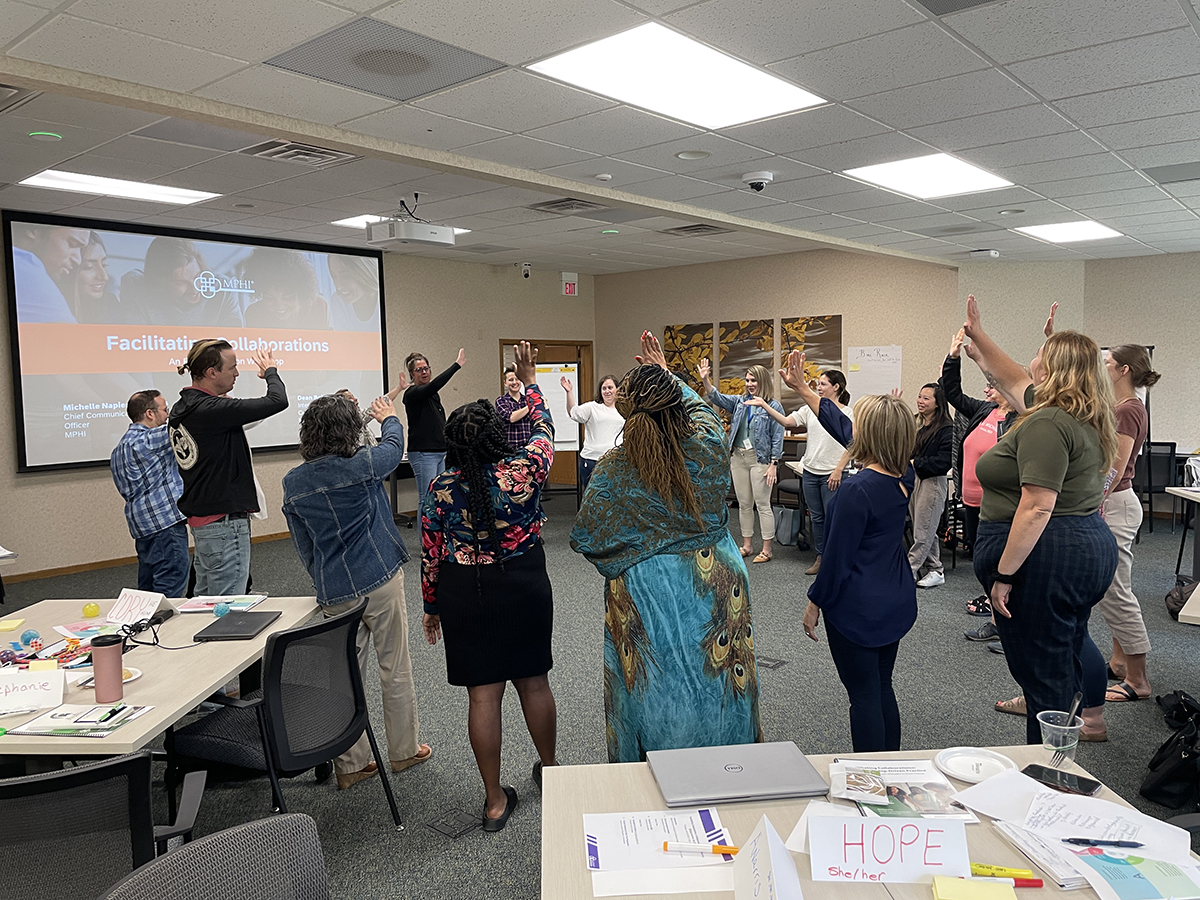
150 Participants
Participants in 2023 workshops.
9 Workshops
Workshops offered in 2023.
122 Posts
Social posts for outreach in 2023.
expanding our
social media
Growing Social Media Outreach
+12.54%
LinkedIn growth
695
Tweets published
682
LinkedIn posts
710
Facebook posts
Instagram Growth
Our outstanding growth on Instagram reflects the younger generation’s interest in quality public health information and suggests the potential for MPHI to explore other platforms that resonate with this audience.
+114.12%
Instagram growth
171
Instagram posts
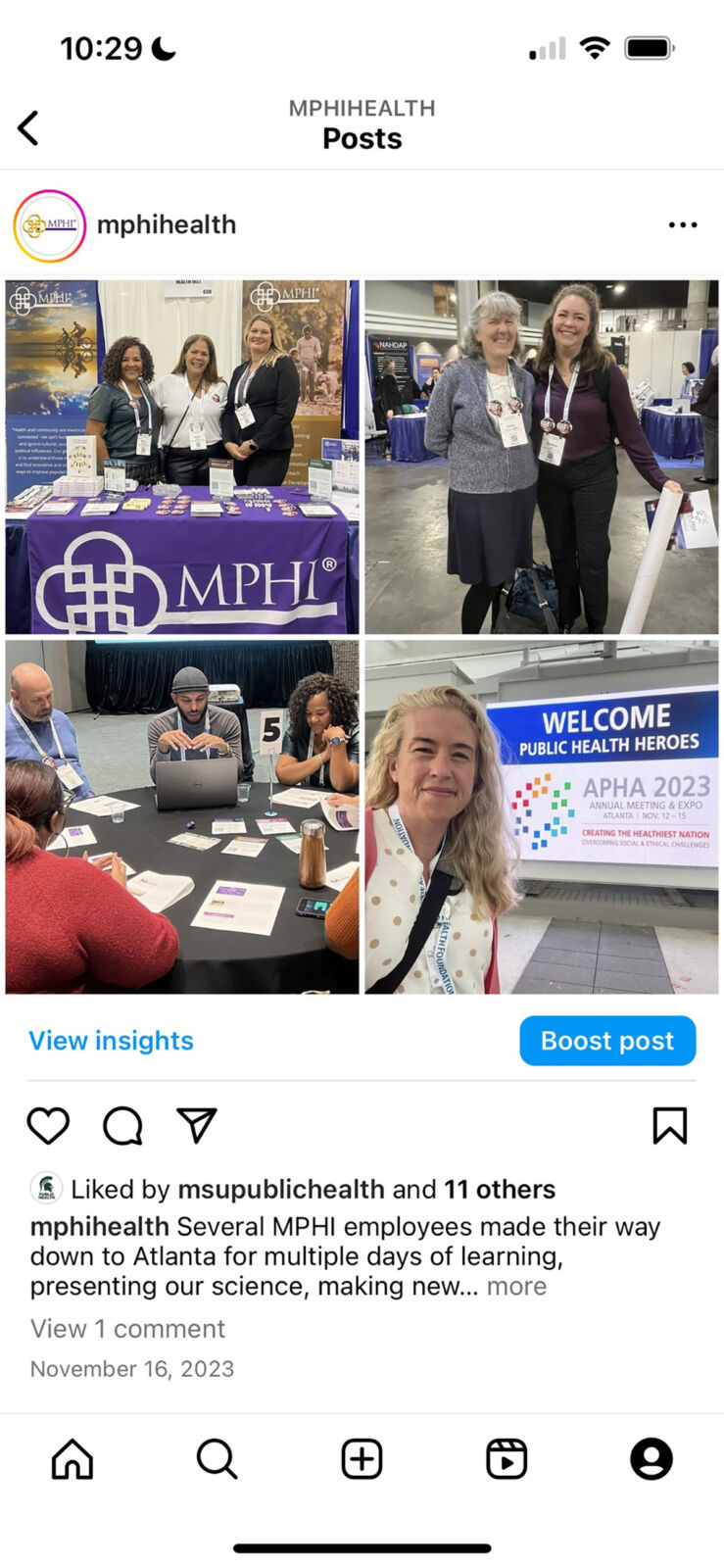
Celebrating
Cyber Security
Upgrading Systems, Servers, and Security
Information Security
Protecting health information and ensuring information security is crucial in public health to maintain trust and confidentiality. Handling sensitive data with utmost care is critical for safeguarding people’s privacy, preventing identity theft, and preserving public trust in health systems. Our commitment to secure and responsible data use is fundamental to improving health outcomes and reinforcing the integrity of our Institute.
Project Work
highlights
Relationships Are Primary.
Everything Else Is Derivative.
Building strong relationships is essential, as it deepens our connection with the communities we serve, ensuring our actions are informed and relevant to those most impacted by health inequities. Even in a hybrid work environment, we foster robust and authentic relationships with our partners, resulting in continued expansion of external project work.
$150M
Project Funding
95
Funding Partners

![]()
In just eight months at MPHI, I’ve dived into unique collaborations, working across centers on significant projects. My exposure to a broad spectrum of staff, from the CEO to program directors to project staff, has been exceptionally enriching, making interactions and work trips enjoyable and engaging. The hybrid work model enhances this experience, blending flexibility with meaningful connections and fueling my enthusiasm for our collective future. This journey highlights the vibrant diversity and community spirit at MPHI.
Cassie Harter, Project Coordinator
Center for Data Management & Translational Research (CDMTR)
Our Work Continues to Grow
(Selected Project Highlights)


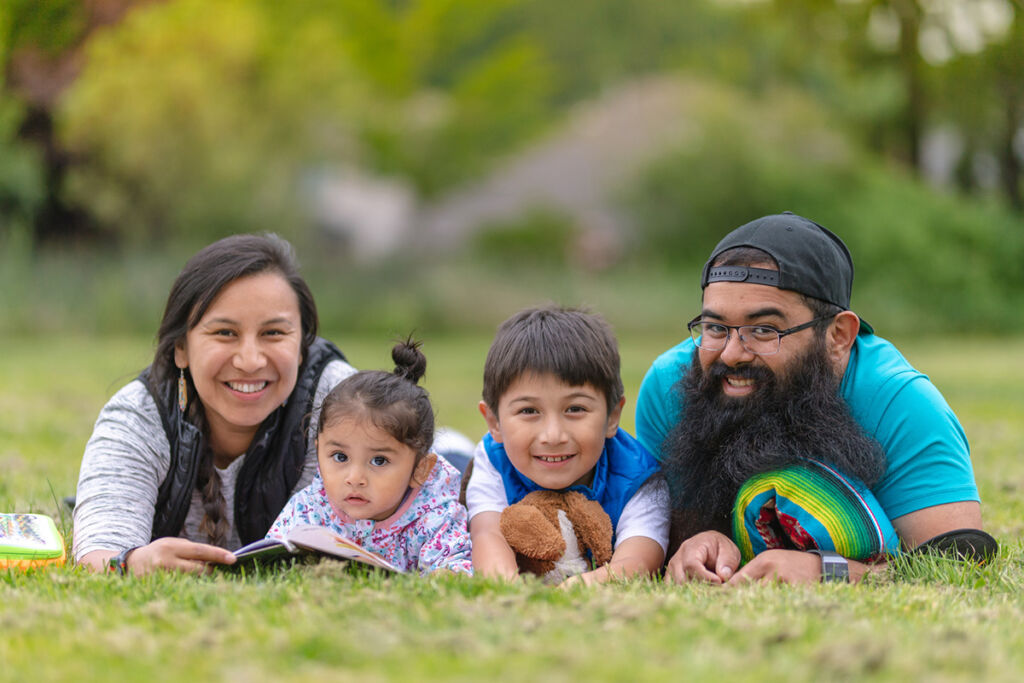






Confronting Community
GUN VIOLENCE
Advance Peace: Addressing Community Gun Violence
The Advance Peace project uses evidence-based practices such as street outreach, mentoring, intensive case management, life skills training, cognitive behavioral therapy, and subsidized employment to engage those at the center of gun violence. Since the implementation of this initiative, beginning in October 2022, the goal of Advance Peace has been to reduce cyclical, retaliatory gun-related violence by 40% in Lansing in three years (by September 2025). We are proud to share that we have reached and exceeded this critical milestone.
A key component of the initiative is the Peacemaker Fellowship, which currently has fifteen active fellows. The Fellowship aims to break the cycle of gun hostilities and alter the trajectory of the lives of young men and women through in-depth, daily interactions.
In its first year of operation, the initiative made significant strides and exceeded goals. Gun violence has seen a continual decrease since the start of Advance Peace in the Lansing area.
Gun Violence Statistics for Lansing, MI
| Date Range | Fatal Shootings | Non-Fatal Shootings | Total Shootings |
|---|---|---|---|
| Oct. 2020 – Feb. 2022 | 31 | 115 | 146 |
| Oct. 2022 – Feb. 2024* | 11 | 87 | 98 |
*Indicates time of Advance Peace implementation in Lansing, MI.
As demonstrated in the above table, gun violence has seen a continual decrease compared with the same time period of implementation for Advance Peace in the Lansing area.
City-wide gun fatalities in Lansing dropped by 65% in 2023, and incidents with evidence of shots being fired were down by 3.5%.
The project plans to expand outreach to southeast Lansing and to neighboring East Lansing in 2024, and to northern Lansing neighborhoods by 2025. The fellowship will also increase from 15 to 60 fellows during calendar 2024.
![]()
Advance Peace’s signature Peacemaker Fellowship is an intentionally designed developmental and healing-centered personal leadership and liberation strategy for those committed to solving conflict with a firearm. Controversially, it also addresses income inequality—it is unquestionably unique in the community violence intervention space.
DeVone Boggan
Founder of Advance Peace
Established the Center for Racial and Social Justice (CRSJ)
Gun violence is undeniably a public health issue. Alongside this, we’re committed to tackling the overrepresentation of children of color in prisons and foster care. To address these ongoing and growing issues, MPHI established the Center for Racial and Social Injustice (CRSJ) to meet the growing needs stemming from systemic injustices.
The CRSJ examines how public health is affected by government structures and systems, particularly with the child welfare, juvenile justice, and criminal justice systems. By studying the historical background of these systems and their impact on marginalized and communities of color, the Center evaluates how policies perpetuate racial and social injustices. The team focuses on projects integrating public health and social justice, aiming to develop preventive strategies, reduce justice involvement, and support reentry and well-being in these systems.

Dr. Shondra Marshall, Director
of the Center for Racial and Social
Justice (CRSJ) at MPHI.
Leading with an
Equity lens
Dr. Renée Branch Canady, MPHI CEO Publishes
Room at the Table: A Leader’s Guide to Advancing
Health Equity and Inclusion
Dr. Canady’s book, “Room at the Table”, was released in September of 2023 and aligns with MPHI’s values of anti-oppression, health equity, and social justice. The book’s innovative approach to these issues has garnered significant earned media attention for MPHI, highlighting our impactful work. This has increased MPHI’s visibility and helps convey MPHI’s expertise as a thought leader in anti-oppression, furthering MPHI’s mission and amplifying the call to action for health equity leadership.
This book explores diversity, equity, and inclusion in public health and healthcare, blending her expertise and personal experiences. It encourages recognizing diverse backgrounds and self-reflection on privilege, guiding readers towards active engagement in health equity.

Dr. Renée Branch Canady at book signing for her new publication, Room at the Table: A Leader’s Guide to Advancing Health Equity and Justice.
Location Does Not
Affect Our IMpact
We are United in Our Mission to Center Equity, Promote Health, and Advance Well-Being.
